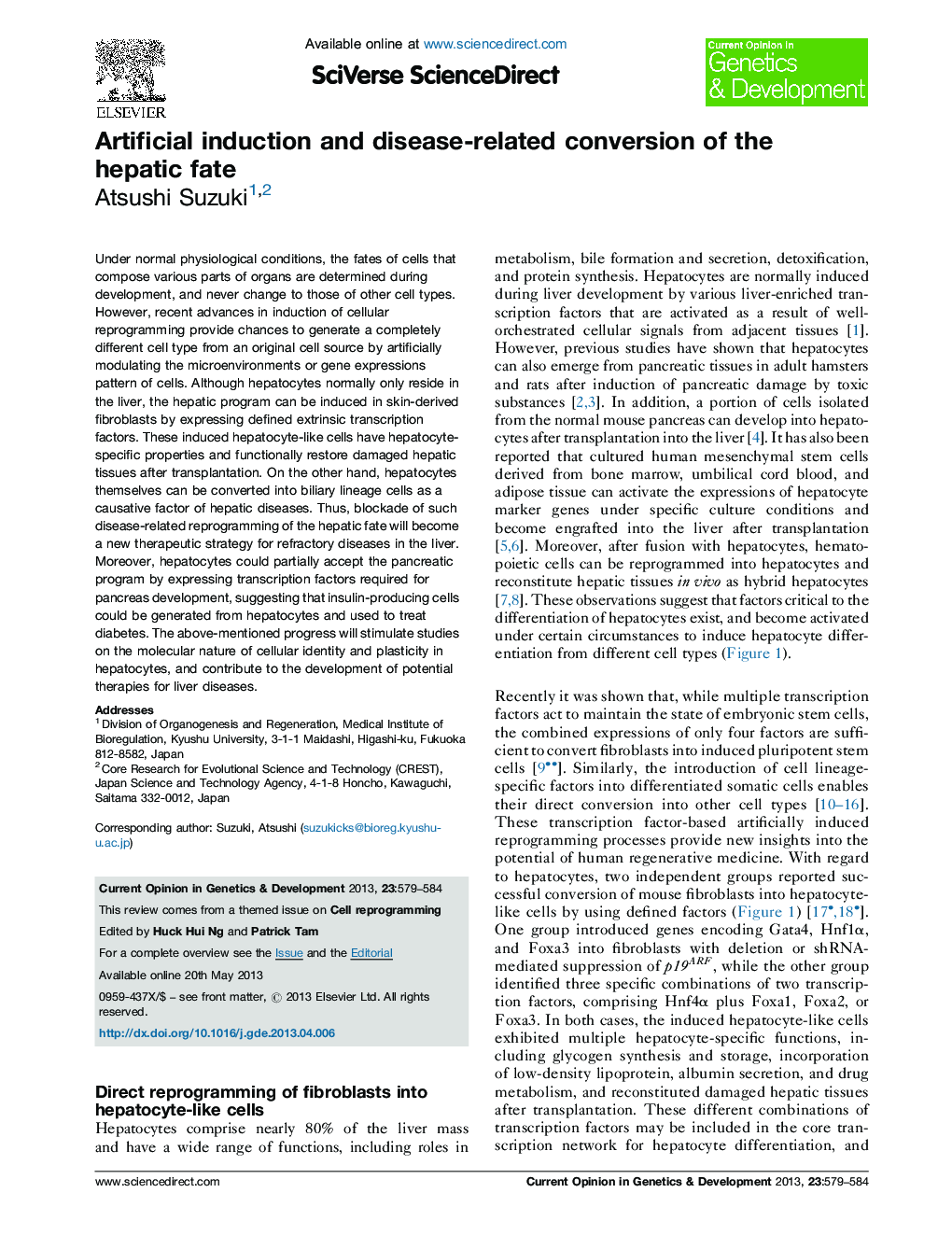| کد مقاله | کد نشریه | سال انتشار | مقاله انگلیسی | نسخه تمام متن |
|---|---|---|---|---|
| 5893667 | 1153918 | 2013 | 6 صفحه PDF | دانلود رایگان |
عنوان انگلیسی مقاله ISI
Artificial induction and disease-related conversion of the hepatic fate
ترجمه فارسی عنوان
القاء مصنوعی و تبدیل بیماری مرتبط با بیماری سرده خون
دانلود مقاله + سفارش ترجمه
دانلود مقاله ISI انگلیسی
رایگان برای ایرانیان
موضوعات مرتبط
علوم زیستی و بیوفناوری
بیوشیمی، ژنتیک و زیست شناسی مولکولی
زیست شناسی تکاملی
چکیده انگلیسی
Under normal physiological conditions, the fates of cells that compose various parts of organs are determined during development, and never change to those of other cell types. However, recent advances in induction of cellular reprogramming provide chances to generate a completely different cell type from an original cell source by artificially modulating the microenvironments or gene expressions pattern of cells. Although hepatocytes normally only reside in the liver, the hepatic program can be induced in skin-derived fibroblasts by expressing defined extrinsic transcription factors. These induced hepatocyte-like cells have hepatocyte-specific properties and functionally restore damaged hepatic tissues after transplantation. On the other hand, hepatocytes themselves can be converted into biliary lineage cells as a causative factor of hepatic diseases. Thus, blockade of such disease-related reprogramming of the hepatic fate will become a new therapeutic strategy for refractory diseases in the liver. Moreover, hepatocytes could partially accept the pancreatic program by expressing transcription factors required for pancreas development, suggesting that insulin-producing cells could be generated from hepatocytes and used to treat diabetes. The above-mentioned progress will stimulate studies on the molecular nature of cellular identity and plasticity in hepatocytes, and contribute to the development of potential therapies for liver diseases.
ناشر
Database: Elsevier - ScienceDirect (ساینس دایرکت)
Journal: Current Opinion in Genetics & Development - Volume 23, Issue 5, October 2013, Pages 579-584
Journal: Current Opinion in Genetics & Development - Volume 23, Issue 5, October 2013, Pages 579-584
نویسندگان
Atsushi Suzuki,
